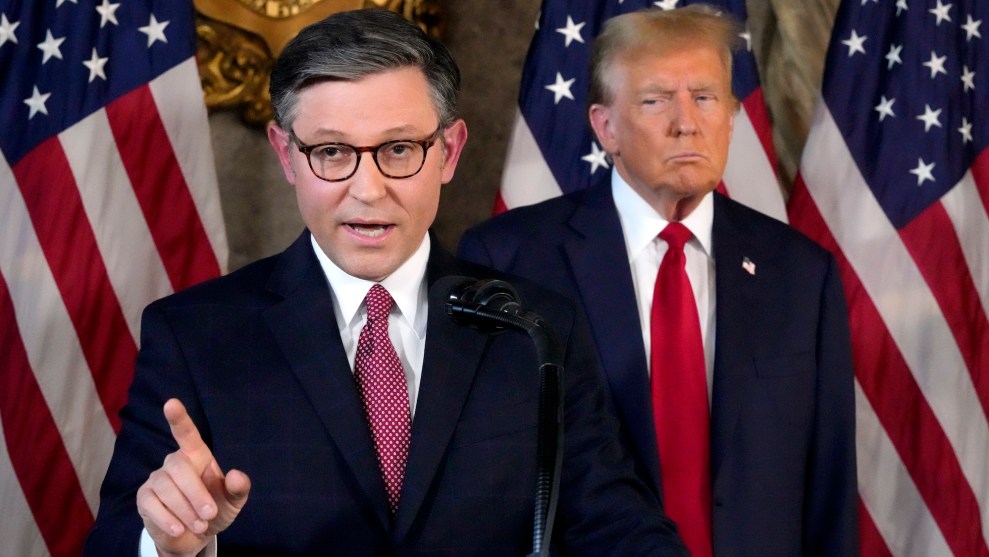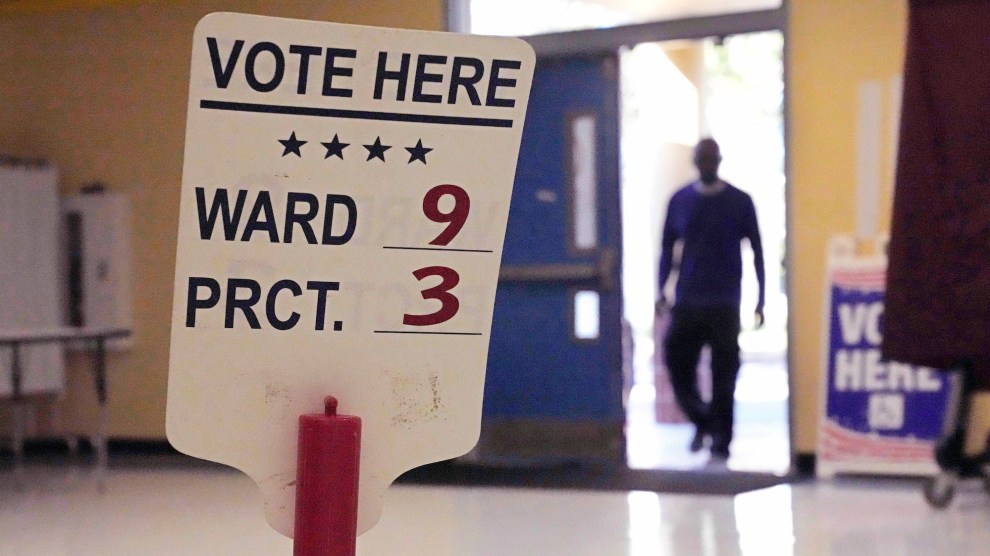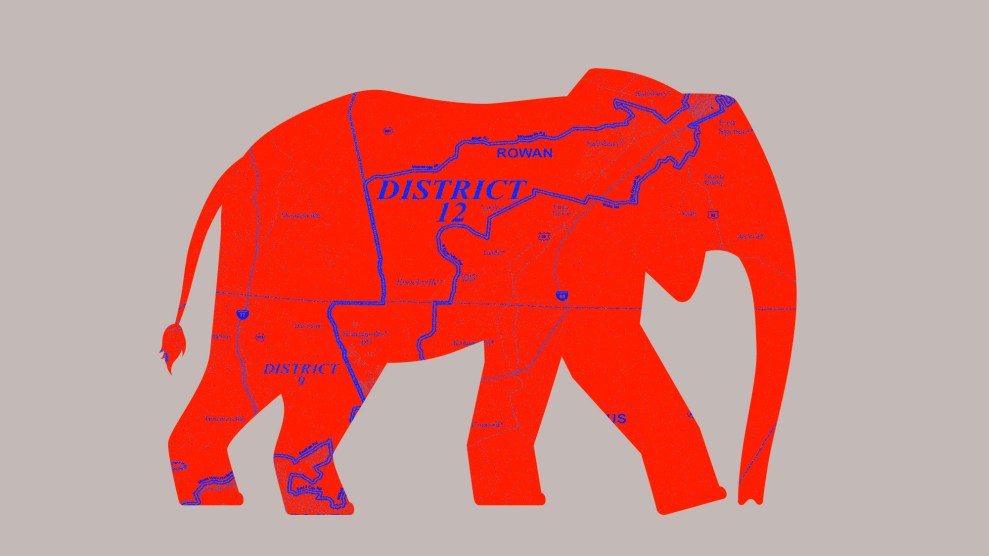
Speaker of the House Mike Johnson, R-La., holds a news conference with Donald Trump on April 12, 2024, at Mar-a-Lago in Palm Beach, Fla. Wilfredo Lee/AP
In April, when he was at risk of being toppled by hardline conservatives, Speaker of the House Mike Johnson (R-La.) made a pilgrimage to Mar-a-Lago and endorsed Donald Trump’s false claims of rampant voter fraud.
Under the guise of allegedly stopping noncitizens from voting in federal elections, which is already illegal, the House of Representatives on Wednesday passed a bill—the SAVE Act—that would require documentary proof of citizenship, such as a passport or birth certificate, to register to vote. It’s a measure that fuses two of the central planks of the MAGA agenda—anti-immigrant hysteria and voter fraud paranoia. The bill has no chance of becoming law while Democrats hold the Senate and presidency, but it’s a frightening preview of the type of suppressive policies Trump and his GOP allies will pursue if they retake full control of Washington in November.
All of the evidence shows that registration or voting by noncitizens in US elections is exceedingly rare. In 2016, the Brennan Center for Justice surveyed 42 jurisdictions, home to 23 million people, including 8 of the 10 areas with the highest population of noncitizens, and found just 30 instances of a suspected noncitizen voting, equal to 0.0001 percent of total votes. A 2022 audit by the Republican secretary of state in Georgia found just 1,600 noncitizens attempted to register to vote over a 25-year period and none were successful.
Even Johnson admits that he can’t find any proof of the fraud he’s supposedly trying to stop. “We all know, intuitively, that a lot of illegals are voting in federal elections,” Johnson said at a press conference in May. “But it’s not been something that is easily provable. We don’t have that number.”
If Trump and his allies regain power, they’ll turn his Big Lie into policies that will lead to the biggest rollback of ballot access in decades.
But the risk of voter disenfranchisement from proof of citizenship laws is something that can be quantified. Nine percent of American citizens, roughly 21 million people, don’t have ready access to citizenship documents, according to a new study by the Brennan Center and other voting rights groups.
“What’s more, our estimates are probably conservative measures of impact,” the Brennan Center writes in its latest study. “While it’s true that most Americans can access these documents, most of us don’t walk around town carrying our passport or birth certificate. If those documents were required for voter registration, most would not have them readily available to take advantage of opportunities they encounter at schools, churches, or other community spaces where registration drives register many Americans to vote.”
When Kansas passed a proof of citizenship law in 2011, it blocked 1 in 7 new registrants, more than 31,000 people, from successfully registering. Nearly half were under 30. Kansas Secretary of State Kris Kobach, who saw the law as a model for the nation, claimed noncitizen voting was “pervasive” but uncovered only seven convictions for such acts in Kansas over a 13 year period. A federal court struck down the law in 2018; the alleged cases of voter fraud Kobach presented before the court, which he called “the tip of the iceberg,” was “only an icicle,” Judge Julie Robinson wrote.
Despite the Kansas debacle, Republican-controlled states are moving forward with similar measures following Trump’s lead. Louisiana passed a proof of citizenship law last month, as did New Hampshire recently (the state’s Republican governor has expressed reservations about it).
Adopting such a law on a nationwide basis, as Johnson and Trump want to do, could prevent hundreds of thousands of Americans from registering—or more. President Joe Biden has vowed to veto the SAVE Act. “The alleged justification for this bill is based on easily disproven falsehoods,” he said in a statement. But it’s just the beginning of the GOP’s voter suppression agenda.
The newly released RNC platform calls for a return to “same day voting,” which would mean an end to early voting in the 47 states where people can cast ballots before Election Day. If Trump and his allies regain power, they’ll turn his Big Lie into policies that will lead to the biggest rollback of ballot access in decades.


















